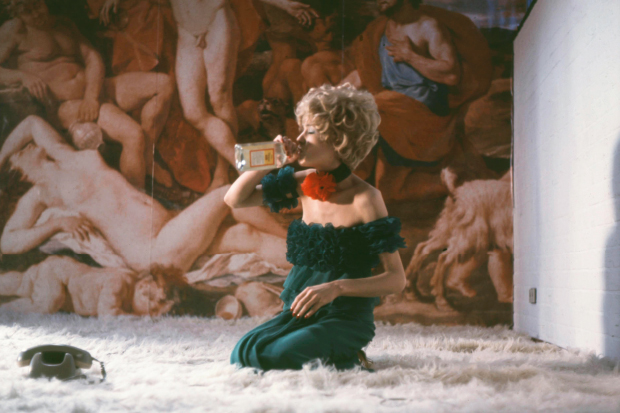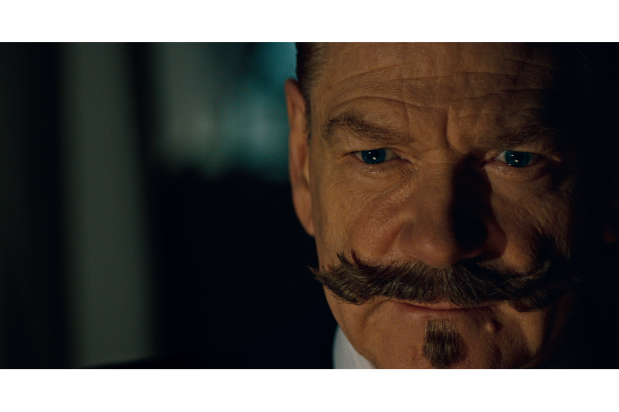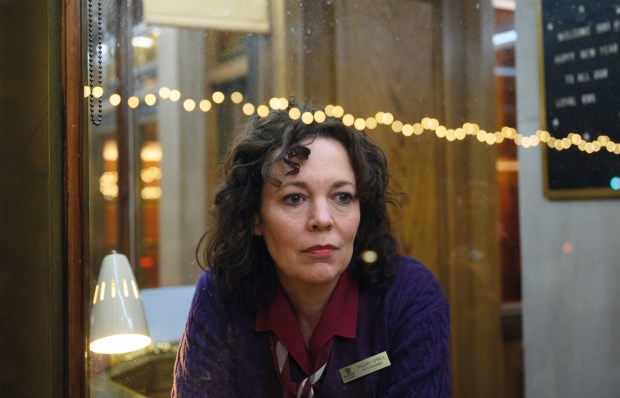London’s Goethe-Institut has a two-month season of films of Rainer Werner Fassbinder (whose 70th anniversary it’s celebrating), but only five movies, each one alternating with a film influenced by him from another country. Considering that Fassbinder created about 60 films, it seems rather a slim effort. Still, half of his output is available on DVD, at no vast cost, and, having revisited many of the films in the past few days, I am more struck than ever by how great he was, and how, thanks to innumerable kinds of pressure, he only intermittently did justice to his phenomenal creativity and energy. He exasperates as often as he enthrals and moves. He seems to have been so obsessed with so many striking ideas that he could never bear not to be translating them into yet another full-length film, written, designed and directed by himself, and often with a role for him in it too. He averaged several films a year, dying at the age of 37, in 1982.
Fassbinder’s animating rage was the misery of almost everyone’s life, and the difficulty of sorting out which parts of the misery are inherent in being alive, which can be put down to the cruelties that all relationships involve, and which to the social and political circumstances in which most of his characters live, with the emphasis on post-war West Germany. Decent people enter circles of corruption, and at the behest of their lusts succumb to them (Lola); settled people suddenly feel they’re going mad (Fear of Fear); the banality of existence makes people snap (Why Does Herr R. Run Amok?); society gives its members ideals which there is no hope of fulfilling (passim). In interviews, Fassbinder talked of ‘the revolution’ that must take place not on the screen but in life itself, but his recipe for the revolution was never spelled out, only the fearful state that we live in without it.
That all sounds pretty trite, but nothing in the style of Fassbinder’s films is ever trite, though many of them can be accused of virtually every other aesthetic and moral crime. He was fascinated by glamour, not only by its insidious power, but also by the sheer kitschy attractiveness of it, which he refused to deny. This partly explains his liking for taking cheap novels or old B-movies and representing them, giving them depth at the same time as he made their surfaces even more alluring. Perhaps the most succinct way of putting it is that Fassbinder’s most successful films, as well as some of the less worthwhile ones, aim at and achieve an operatic intensity — often with the help of cunningly chosen snippets of actual operas, of which he seems to have had a wide knowledge. Hence the error of Gerald Barry setting The Bitter Tears of Petra von Kant to music: the movie itself is already pitched at an artificially high, desperate level, besides using La Traviata repeatedly as background sound.
What may be one of Fassbinder’s most perfect films begins by showing us the successful fashion designer Petra being intolerably affected, petulant and bossy. When a beautiful model, played by Hanna Schygulla, comes for an audition, Petra falls desperately in love with her, begins to arrange a big career, and then finds out what it means to be manipulated by someone who goes off to spend the night with ‘a big black man with a big black dick’.
Petra’s suffering is abject and appalling. She becomes ever more beautiful as she downs gin from the bottle, exchanges one gorgeous wig for another, grovels on her deep-pile carpet, resolves to change and is given no chance to. Fassbinder is no more merciful to his characters than they are to one another. Even his tenderest film, Fear Eats the Soul, in which an elderly Munich cleaning lady and a young handsome Moroccan Gastarbeiter marry, only for their union to be undermined by the anxieties that inevitably result, leaves the spectator with an uneasy hope at best.
Many of Fassbinder’s films are much wilder than that, indeed verge on the incomprehensible, with his luscious set of personal neuroses and obsessions, lavishly unloosed by alcohol and drugs, leading to the artistic chaos that all too faithfully mirrored his life. But in how many other film directors can one sense such rich genius, often employed to obscurely noble ends?
Got something to add? Join the discussion and comment below.
Get 10 issues for just $10
Subscribe to The Spectator Australia today for the next 10 magazine issues, plus full online access, for just $10.
Fassbinder and European Cinema is at the Goethe-Institut until 4 December.
You might disagree with half of it, but you’ll enjoy reading all of it. Try your first month for free, then just $2 a week for the remainder of your first year.














Comments
Don't miss out
Join the conversation with other Spectator Australia readers. Subscribe to leave a comment.
SUBSCRIBEAlready a subscriber? Log in